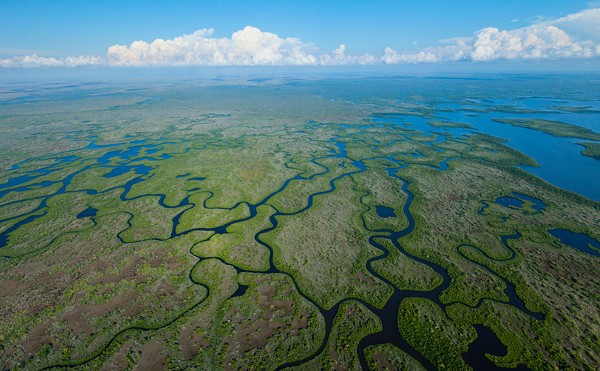It would be difficult to imagine two more different films than the ones opening this week at Tampa's dual (some might say dueling) venues for non-mainstream movies, Tampa Theatre and Channelside Cinemas. The Widow of Saint-Pierre, opening at Tampa Theatre, is a gorgeously mounted period piece with lush cinematography, big themes, a rising international star (Juliette Binoche) and romantic attitude to burn. Ratcatcher, opening at Channelside, is a gritty, utterly unsentimentalized but strangely poetic account of life on the mean streets of Glasgow. The former is sleek, polished and about as close to a guaranteed crowd pleaser as an art film can be without compromising itself to death; the latter is stark and devastating and likely to shock or depress the hell out of a good many of the audience members brave enough to check it out. One more thing: Ratcatcher might also be something very close to a masterpiece. Both films, in their own ways, take strongly humanist stances, refusing to pass judgement on any of their characters' sometimes dubious quirks or activities, and finding hope, beauty and even the possibility of redemption in situations that might ordinarily be thought of as simply tragic. I suppose that's one of the chief things that sets both films apart from the mainstream (that and the subtitles), and more power to them.
The Widow of Saint-Pierre is the latest movie from French filmmaker Patrice Leconte, the acclaimed director of Msr. Hire, The Hairdresser's Husband and, most recently, The Girl on the Bridge. Leconte flies highest when he's working without a net, exploring the nuances of the modern world through a direct engagement with the psychology and sexuality of his characters. His projects that have been confined by period trappings, like Ridicule and now The Widow of Saint-Pierre, have fared less well, although nothing Leconte has created over the last two decades has been anything less than beautiful.
The Widow of Saint-Pierre takes place in 1850 on the remote island of Saint-Pierre, a French territory off the coast of Newfoundland. Visionary filmmaker Emir Kusturica (Arizona Dream, Underground) takes his first turn before the cameras as Neel Auguste, a condemned murderer waiting to be executed. It seems the island doesn't have a guillotine (called a "widow" in old French slang), so one must be shipped in from faraway France. In the meantime, the local military commandant and his wife (Daniel Auteuil and Binoche) take the man under their wing, allowing Neel the freedom to eventually impress the rest of the community with acts of courage and his general likability.
The film is powerfully acted and beautiful to look at, with a camera that lives in the moment, stately and serene one instant, swooping and leaping with the characters the next, like some 19th century variation on Lars Von Triers' DogmaVision. Leconte is less enigmatic and ultimately less satisfying here than usual, but there is a directness and simplicity to the story that invites us into the proceedings. At the same time, the movie wears its agenda a little too clearly on its sleeve, never even bothering to explore the fact that its hero/martyr, Neel, is actually guilty of a senseless killing. There are sublime moments to be found here, but the essence of the film, with all its well-intentioned ragging on the death penalty, winds up feeling just a little too close to a Dead Man Walking in period drag.
The Scottish import Ratcatcher is a period piece of sorts too, although the tone is so relentlessly contemporary you'd hardly realize it. Outside of Tom Jones on the telly and a few unfortunate articles of clothing, the only indicators that the film takes place in the 1970s are the massive mounds of garbage everywhere, a sign of the Scottish refuse workers strike of the period. Like many of the images in her film, director Lynne Ramsay uses the sight of miles and miles of black trash bags to create a disquieting impression at once grotesque, surreal and strangely serene. There's a terrible beauty at work here, one that informs Ratcatcher from its first frame to its last.
Ramsey tells her sparse, episodic story largely through these tough but always instinctive images, focusing on the discarded human rubbish — and particularly the children — of Glasgow's slums. Her actors are thoroughly unglamorous and mostly nonprofessionals, adding to the impression that we're watching something not too far removed from a Scottish variation on Larry Clark's Kids. Ratcatcher is an even more profound effort than Kids. It isn't afraid to slap us around; nor is it afraid to offer us moments of ravishing tenderness and sheer poetry. That sense of the sublime infuses even the most awful moments in Ratcatcher, and ultimately allows the film to transcend and transform all the ugliness in its world.















